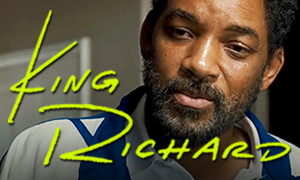Bloodsport: History vs. Hollywood
based on experiences in the life of martial artist Frank W. Dux
| REEL FACE: | REAL FACE: |
Jean-Claude Van Damme
Born: October 18, 1960 Birthplace: Berchem- Sainte-Agathe, Brussels, Belgium | Frank W. Dux
Born: 1956 Birthplace: Toronto, Canada |
Roy Chiao
Born: 1927 Birthplace: Shanghai, China Death: April 16, 1999, Seattle, Washington, USA (heart disease) | Jack Seki
Born: July 7, 1914 Birthplace: Los Angeles, California, USA Death: April 20, 1998, Bullhead City, Arizona, USA |
Donald Gibb
Born: August 4, 1954 Birthplace: New York City, New York, USA | Richard Robinson
|
-Frank Dux (Martial Arts Magazine)
Is the underground Kumite Tournament in the movie Bloodsport real?

Frank Dux (right, circa 1975) shared a similar resemblance with his onscreen counterpart Jean-Claude Van Damme (left).
As stated in the November 1980 Black Belt magazine interview, titled "Kumite: A Learning Experience," the real Frank Dux did in fact attend and win the 1975 Kumite, weighing in as a heavyweight. His experience became the inspiration for the onscreen events in the 1988 movieBloodsport. However, according to Frank's accounts, "The Kumite" was held in Nassau, Bahamas in 1975, not in Hong Kong like we see in the film. Controversy has arisen around Dux's own past and his stories of The Kumite. In our own correspondence with Frank, he named numerous organizations as acknowledging the existence of The Kumite, including the USA Martial Arts Hall of Fame, The Alliance, Black Dragon Fighting Society, Shinjimatsu (Yokohama, Japan), Golden Globe International Martial Arts Hall of Fame, and Imperial, among others.
Black Belt magazine's November 1980 issue states the following, "The truth is that a full-contact kumite event is indeed held at a private location once every five years. The event is sponsored by the International Fighting Arts Association (I.F.A.A.) which, although not a publicity seeking organization, is far from secret." (Black Belt Magazine, 1980, p. 28).
Considering that the Kumite took place nearly two decades before the emergence of the internet, coupled with the I.F.A.A.'s desire to remain out of the public eye, it is not hard to understand why an online search for the I.F.A.A. organization yields little evidence of its existence, other than a brief mention on the websiteFasstDuxRyu.com. The website is run by one of Dux's former students, Sky Benson, who uses the website to help promote Dux's fighting system, FASST™/Dux Ryu.
In communications with Frank, he stated that the I.F.A.A. has since disbanded and that the Black Dragon Fighting Society is a "derivative affiliate" of the former organization, which was still in existence when the 1980 Black Belt magazine article was written. This might also help to explain why an online search for the I.F.A.A. yields such a small number of results. The Black Dragon Fighting Society (BDFS) is a sponsor of the Kumite in the Bloodsport movie. It should be noted that the BDFS acknowledges Frank Dux's championship titles and world records, which are listed on their South African website.
Frank's records also appear at the end of the Bloodsport movie, displayed as follows:
From 1975 to 1980 Frank W. Dux fought 329 matches.
He retired undefeated as the World Heavy Weight
Full Contact Kumite Champion.
Mr. Dux still holds four world records:

Fastest Knockout - 3.2 seconds
Fastest Punch with a Knockout - .12 seconds
Fastest Kick with a Knockout - 72 mph
Most Consecutive Knockouts in a Single Tournament - 56
Those who believe that the Kumite was a fantastic exaggeration need only to fast-forward thirty plus years to the Mixed Martial Art cage fight genre of today, as CNBC reporter Scott Wapner points out during the segment "From Bloodsport to Blue Chip." Wapner explains that the Kumite essentially gave birth to today's publicly recognized MMA.
What does the word kumite mean?
Translation of he Japanese word kumite means "free fighting" or roughly "sparring." The westeren sense of the word incorporates a broader meaning that includes "sparring" in boxing and even some forms of karate, like Shotokan.
Kumite is one of the three main areas of traditional Japanese karate training, along with kata and kihon (form and fundamentals). In the movie Bloodsport, Kumite is the name given to the deadly, underground, full-contact fighting tournament to which the main character, Frank Dux (Jean-Claude Van Damme), is clandestinely invited. Other real life names used to refer to the tournament include Vale Tudo, San Soo, No Holds-Barred, etc.
How did Frank Dux get invited to the Kumite competition?
Dux found himself entered in the International Fighting Arts Association (I.F.A.A.) competition because his instructor, a Japanese man named Senzo Tanaka, had participated in past events. After performing well enough in smaller kumite matches held by the I.F.A.A., the organization granted him an invitation to the international event.
-Black Belt Magazine, November 1980
In the movie, is Frank's nemesis, Chong Li (Bolo Yeung), based on a real life individual?

Dux said that Bolo Yeung's character was based on a real person.
Did the real Chong Li blind Frank Dux during their fight?
Yes. Dux said that the real Chong Li openly admitted to blinding him during their fight. However, Chong Li assured Dux that the incident was purely accidental, regarding blurring his eyes with liniment. "In the movie, the incident is shown as him intentionally tossing powder, but it was beads of sweat and dit dao mixed in that temporarily burned my eyes, blinding me, which is not a single unique occurrence for fighters. Muhammad Ali for instance shares a similar experience," Frank said.
Does the 1980 Black Belt magazine article offer definitive proof of the Kumite and Frank Dux's achievements?
The now legendary Black Belt magazine article "Kumite: A Learning Experience" is prefaced with the following disclaimer. "Although there is no convenient way to verify each and every detail connected with the story, the editors have verified enough of the basic facts to feel confident in publishing it. But since we are not at liberty to share the corroborating evidence with the public, we acknowledge that each reader may have a different idea of what the facts permit him to believe." Regarding Dux, the magazine states, "Although the details of his story are impossible to check out completely, BLACK BELT has spoken with other I.F.A.A. members from the United States and abroad who have privately confirmed that the basic facts are indeed as Dux says they are."
In 2009, Frank Dux sent HistoryvsHollywood.com a copy of a cover letter from John Stewart, the editor of Black Belt magazine and author of its Kumite article. Stewart's letter, dated May 21, 1980, makes general statements about Frank Dux's unique martial arts expertise and knowledge, stating, "BLACK BELT magazine has conducted a lengthy series of interviews with Mr. Dux, and it is the opinion of the editor that:
- Dux is highly skilled in a number of martial arts and has mastered some extremely unusual techniques, many of which may never be seen by the general public.
- Dux is a fully knowledgeable consultant on the details of such subjects as full-contact fighting, breaking objects, weapons technique, and anit-terrorism.
- He has had military experience of a unique nature."
In the letter's closing, John Stewart wrote, "While this magazine ordinarily does not act as an agency for the verification of skills or credentials, in this case we happen to know that the above statements are true."
What made Frank Dux decide to talk about the existence of the Kumite in Black Belt magazine?
In Martial Arts Illustrated, the real Frank Dux answered this question by saying, "The stated purpose in doing the article is the fact I issued an open challenge encouraging others to fight in the Kumite circuit I championed as a heavyweight, in 1980. It is the reasons why I was "green lighted" to act as a spokesperson for the I.F.A.A. then trying to commercialize the event, with a foothold in the United States."
Can Frank Dux prove that he fought in a tournament called the Kumite?

Frank Dux holding his 1975 Kumite tournament trophy. Dux said the photo was taken in 1976.
Johnson's claims contradict the facts regarding Dux's achievements that are displayed at the beginning of the Bloodsport movie credits. "There exists as public record eyewitness testimony and photographic evidence of my winning the Kumite made available through court proceedings," Dux says. This is in addition to the journalistic research undertaken by print and broadcast media outlets and the fact finding done by the legal firms of the movie studio and the publishing house behind Dux's book.
When interviewed by Martial Arts Illustrated as part of their "Asking the Masters" series (December & January 2008), Dux tackled Johnson's allegation that he bought his trophy, and in speaking with HistoryvsHollywood.com, he supplied a copy of the alleged receipt and responded, "One cannot litigate or force a retraction of opinion. To demonstrate how untrustworthy John Johnson is, keep the following in mind. My trophy has been in my possession and on public display, since January 1976. John Johnson alleges, in 1988, he was able to obtain the receipt for my trophy made out to me and commissioned in my name - TWELVE YEARS AFTER MY TROPHY IS IN MY POSSESSION! The trophy shop owner, Mr. Moody, is quoted by John Johnson as saying that it was "partially" manufactured by Moody in his trophy shop, located near my home. After the editorial, I spoke with Mr. Moody, who denied ever supplying Johnson this mysterious receipt and acknowledged he informed Johnson he was misquoted, referring to partially repairing another trophy of mine, damaged after my studio was broken into by students of a business competitor. These perpetrators were arrested and convicted. This is a verifiable fact, a public record. This alleged trophy receipt was shown in a court of law to be an obvious fabrication, thus withdrawn from evidence due to these facts:
- The alleged trophy receipt is a Xerox document where Frank Dux's signature is cut and recopied from another document onto the receipt, in addition to giving the incorrect address for him. Anyone could create this on their home copier.
- The trophy inscription name is incorrectly spelled D-U-K-E-S and not D-U-X (contrary to the correct spelling inscribed on Dux's trophy).
- The alleged trophy receipt is dated 1979, which is three years after the trophy was first viewed in my possession, both on public display and in the photo that was taken of me holding the trophy (above) that appeared in Black Belt magazine, November 1980.
- No resemblance exists between the John Johnson photocopy of a trophy receipt and Dux's trophy. The Johnson receipt is for a three tiered trophy with two gold cups on and four judo figures. The kumite trophy has a two foot pedestal base with a large engraved silver bowl as its crown, and it is not even remotely close in its size specifications and materials to the description on the alleged receipt."
In the interview with Martial Arts Illustrated, Dux also stated that the article's author, John Johnson, was an acquaintance of his ex-wife and that the article was written at the same time that he was embroiled in a bitter divorce.
 View the alleged trophy receipt produced by John Johnson.
View the alleged trophy receipt produced by John Johnson.Was Dux's instructor in the movie based on an actual person?
Yes. The Bloodsport true story reveals that Frank Dux's instructor in the movie is a composite of two individuals, Jack Seki and Senzo Tanaka. "Jack Seki is an extended Tanaka family member and is related to my other instructor who I met through Seki, Senzo Tanaka," Frank said. When asked about instructor Senzo Tanaka, Frank said that they "did not part the best of friends."
Did Frank Dux really meet his karate instructor after breaking into his house?

As a boy, the real Dux never broke into his instructor's house.
Did Frank Dux have to evade U.S. Military police to fight in the Kumite?
No. In the movie Bloodsport, Jean-Claude Van Damme's character is a valuable U.S. Military Operative who tries to evade two military police agents so that he can fight in the Kumite. Contrary to internet gossip and unsubstantiated allegations, no evidence exists of the real Frank Dux having directly claimed he worked for the CIA or military as an in-expendable agent, as depicted in the movie. Some of the misconceptions undoubtedly come from the cover of Frank Dux's memoir, The Secret Man: An American Warrior's Uncensored Story. Dux says that the publisher misrepresented him on the cover. He alleges that he only worked as a contract agent for the CIA and was never a card-carrying member.
Recognizing the intelligence-gathering value, as a contract agent, Dux initially entertained only participating in the Kumite in order to formulate a plan to get closer to the Asian criminal element that organized the fights. He says that he never expected to win. Regarding his character being on the run from military agents, "The AWOL bit was the producer's idea," Frank said.
Did spectators really place bets on Kumite fights?
Yes. According to Black Belt magazine, gambling did take place at the Kumite. Frank said that documentary video footage taken by eyewitnesses who attended the events also verifies the fact that gambling was an aspect of the Kumite. "We rarely knew each other by our names," Frank said of the fighters, "due to fear at any moment the doors to the room could be kicked in and we would end up jailed, with all the gambling going on." (Martial Arts Illustrated)
Is Dux's friend in the movie, Ray Jackson, based on an actual person?

Frank Dux and actor Don Gibb on the Bloodsport movie set in 1986.
Is Jean-Claude Van Damme's love interest in the movie Bloodsport based on a real person?
No. In the movie, the main character becomes involved in a romantic and sexual relationship with an American journalist named Janice Kent (Leah Ayres). "As far as the love interest, she did not represent a single particular person," Frank said, "nor would I be intimate with a woman right before a fight."
Did Frank Dux sue Jean-Claude Van Damme over a script titled The Kumite?

Dux battled Jean-Claude Van Damme in court in 1998.
Did Frank Dux win his court case against Jean-Claude Van Damme?
No. Frank Dux lost his case against Van Damme. CourtTV.com states that Van Damme's attorney, Martin Singer, centered his closings on two witnesses who attacked the truthfulness behind Dux's claims.

Dux (center) and Van Damme on the Bloodsport set during happier times, with costar Paulo Tocha.
An independent observer to the trial, the Hollywood trade magazine Point Of View, offers up another observation and raises an eyebrow at how the trial was run. Point of View's Jennie and Terrie Frankel write, "The judge karate kicked Dux below the belt with a series of unprecedented rulings that precluded the testimony of any rebuttal witnesses, any impeachment witnesses, and all actual eyewitnesses to the deal. Kramer (Dux's attorney) argued these witnesses were critical to his case, but to no avail."
Dux states, "Regarding Kim Owen's testimony, I wasn't able to put before the jury any substantive rebuttal evidence, such as a FEMA engineering report detailing and condemning the structure at the time in question. This directly contradicts Owen's testimony. Notably, the contractor's invoices making the repairs that detail the reconstruction of balconies were precluded. Her photographic evidence wasn't taken by her and it could have been taken before the earthquake."
"I recently received an inquiry via my myspace page by Jean Claude Van Damme," Frank reveals, "asking me to please set aside our past differences in order that I might collaborate with him on doing another Bloodsport. One thing is for certain given our last communication, we recognize we are both fighters who fought for what we believed was the truth for us, and unfortunately the people around us, who could not understand this, began a mudslinging campaign on both sides to our mutual detriment. It was out of our control."
Did Frank Dux set a record for breaking bulletproof glass with his bare hands?
Yes. Dux performed the world record feat at the 1993 International Martial Arts Festival at Bercy Stadium in Paris in front of representatives of numerous martial art organizations taking part in the event; an international press corps; bushido magazine staff; and approximately 40,000 spectators who were able to inspect the glass before and after the break. "The pieces of bullet-proof glass were handed out to members of the press, as well," Dux said. The onsite doctor's medical report substantiates glass (not sugar-glass) was embedded in Dux's foot and hand for which TV camera close-ups take notice of.
 Watch a video of Dux breaking the bulletproof glass.
Watch a video of Dux breaking the bulletproof glass.
In the 1998 Dux vs. Van Damme trial, Richard Alexander, who claimed to be Frank's friend for over twenty years, testified against him saying that Dux's feat of breaking bulletproof glass with a single punch was a hoax. Alexander said that it was really Plexiglas that Dux had found. In his testimony, Richard Alexander also described another stunt that he alleges Dux staged, whereby Dux shattered a glass bottle with his bare hand. Alexander claimed that Dux used candied glass instead of the real thing. Alexander stated under oath that Dux is a liar who "tries to get something for nothing." Court TV Online states that Dux's attorney, Steven Kramer, attempted to discredit Alexander by accusing him of having a grudge against his client, revealing that Alexander had attempted to steal Dux's car.
"Court TV Online fails to report that Alexander was dismissed by the judge before my attorney Steven Kramer could even complete his cross examination," Dux cites. "Kramer exposed that Richard Alexander lied under oath about his real identity, that he is really Richard Shimer, a convicted felon." Dux provided to HistoryvsHollywood.com, a mug shot of Alexander (aka Shimer).
In our communications with Dux, he stated that Alexander did not witness him breaking the bulletproof glass, "Richard Alexander (aka Richard Shimer) who was not a witness, is not my friend for twenty years and documents in my possession prove my relationship with him amounts to he attempted to steal my car, as was exposed in a court of law." It should be noted that Alexander was the only witness contesting the break, yet this testimony is repeated over the internet with no mention of the many reliable witnesses who contradicted Alexander's testimony while under penalty of perjury.
With regard to the bulletproof glass, Dux told Martial Arts Illustrated, "In breaking the bulletproof glass it took me two attempts. Candy or Plexiglas would obviously break on the first strike, considering I generated enough force to have cracked the glass with the bullet wad still in it and visibly bent the ¼ inch steel frame holding it backwards with my first strike, as captured by the European telecast and watched by millions."
Dux also provided HistoryvsHollywood.com a copy of the declaration of Jose Bermudez, who testified in the 1988 Dux vs. Van Damme trial. Bermudez is the fabricator responsible for supplying the bulletproof glass and documenting its authenticity by videotaping the glass being shot by a fully loaded 9mm bullet. The impact area and bullet wad in the glass is seen on the video being circled and signed by the shooter. In trial, Bermudez further produced cancelled checks and paid invoices verifying it was indeed bulletproof glass.
Did the scene really happen where Dux crushes the bottom brick in the stack?

The real Frank Dux (right) performed brick breaking stunts similar to those seen in the movie (left).
Did Frank train actor Jean-Claude Van Damme for his role in the movie Bloodsport?
Frank said, "…I trained him three times a week for several months in preparation for Bloodsport, as acknowledged in the film's credit role." According to Frank, Van Damme attempted to conceal this in 1998 when he was on the stand during their litigation over The Quest. -Martial Arts Illustrated
Did the real Frank Dux nearly lose his life to a brain tumor?
Yes. In 1993 Frank Dux was very ill with two brain tumors (The Artesia Daily Press, July 18, 2008). He spoke of this experience in an interview with Martial Arts Magazine, "In 1993, when I began writing this memoir, neither monetary gain nor fame seemed relevant at the time, as I was extremely ill, due to a brain tumor. ...Ultimately, I would become comatose due to surgical complications resulting in a spinal fluid leak that led to spinal meningitis. When I recovered, I realized I wasn't living up to that responsibility which outweighs personal gain. What needed to be said could have died with me, so I tossed my completed first book and wrote this book [The Secret Man] instead, fully aware that if I lived I would be subjecting myself to criticism by envious and would be compromising my personal safety."
Was Frank Dux really an inexpendable soldier in the U.S. Military?

Frank Dux on graduation day in 1975, at the Marine Corps Recruit Depot in San Diego, California.
For example, researcher B.G. Burkett states that he used the Freedom of Information Act to obtain a copy of Dux's Marine Corps records, and thereby discovered that Dux served in the Marine Corps Reserves in the U.S. from 1975 to 1981, never seeing any overseas action. If these records are correct, it means that Dux was not even in the U.S. military during the United States efforts in Vietnam, since the U.S. left Vietnam in 1972 and the North took it over in 1975.
"Burkett's rational is somewhat misleading," says Dux, "in light of the observable fact the U.S. military and intelligence services only suspended their conventional military operations in 1973, all while clandestine, covert special operations continued, including their fronts (i.e. Air America employing private contractors photographed evacuating the US Embassy in 1975). Such activities still remain ongoing in Southeast Asia, to this day." For more details, see B.G. Burkett's 1998 book Stolen Valor: How the Vietnam Generation Was Robbed of Its Heroes and Its History and be sure to check out Frank Dux's website where you can review The Legal Analysis and Breakdown of Stolen Valor with regards to Dux's court case of libel and slander (Dux vs. Soldier of Fortune magazine). "The Legal Analysis and Breakdown reveals over 600 unsubstantiated allegations made by Burkett, whose book is self-published, not subjected to unbiased independent external scrutiny, unlike my book The Secret Man," says Dux.
It appears that the main problem with Burkett's research is that it ignores the fact that Dux never claimed to be a veteran of the Vietnam War in the first place. "I never represented myself in my book or otherwise as a Vietnam War veteran, was in the CIA, or murdered anyone," Dux said. However, it's easy to see why so many people have been led astray with regard to various facts about Dux. For instance, the Publisher's Weekly review of Dux's 1996 book The Secret Man, which is no longer in print, states, "It's hard to tell whether the author is merely posturing or expressing his fantasy life in a memoir that reads as if patterned on the early paperback Avenger series. … He was a contract operative for William Casey, who supposedly recruited him in a urinal after introducing himself as 'head of the f*cking CIA.' The missions Dux recounts include killing a mass murderer and aiding the U.S.S.R. in investigating what proved to be a scam anthrax scare." Dux called the Publisher's Weekly review, "over the top and deceptive." (Martial Arts Illustrated)
Was Frank Dux really a CIA Operative as his book claims?
Dux's book The Secret Man tells of his often graphically violent James Bond-like experiences as a CIA operative, who masked his covert operations under his international reputation as a martial artist. The cover of the book refers to Dux as "the CIA's finest covert operative." "To say I worked for the CIA is misleading," Dux said in a 2008 interview with Martial Arts Illustrated. "The publisher's marketing director and publicist of The Secret Man made the interpretation I worked for the CIA as it appears on the book jacket, not me," insists Dux. "But the book jacket also points out I was given the moniker 'The Secret Man' because I worked in anonymity, specifically, unknown to and outside the military or the CIA's auspices to avoid compromise by intelligence oversight procedures or violation of the Boland and Logan amendments." Dux emphasizes that he never worked as a card carrying agent for the CIA, stating, "it is historical fact guys like me ended up working for their front companies."Dux describes himself as being a third generation descendant of covert operatives. "From 1981 to 1987, I served as a covert operative for CIA director Bill Casey," Dux told Martial Arts Magazine. His alleged contact in the CIA, director William Casey, passed away from a brain tumor in 1987, almost ten years before Dux's book was published. William Casey was not around to either confirm or denounce Dux's statements, or the existence of their relationship. However, other individuals have stepped forward to help lend credence to Dux's role as an operative.
Congressional expert witness, Iran-Contra insider, US Navy Lt. Cmdr. Alexander Martin stated in court proceedings under penalty of perjury, "During my intelligence career, I have met with and been introduced to many covert operatives, whose existence has often been officially denied by the government agencies that these parties have been associated with. One of these covert operatives was one Frank Dux." Lt. Cmdr. Martin's declaration was entered into evidence as Exhibit #25 in Dux's suit of libel and slander against Soldier of Fortune magazine.
Frank has additional military related experience as noted by Kathy Kolt in her 2008 Artesia Daily article, "In 1996, he (Frank Dux) was with HIDTA, High Intensity Drug Trafficking Area at the Criminal Justice Center. He designed strategies and tactics and evaluated their existing training program. In 1997, he received awards from the Multi Jurisdictional Counter Drug Task Force for drug task investigations. He also was sponsored by the Department of Defense to teach NEOA, Narcotics Enforcement Officers Association, covert activities. He is an adjunct faculty member of the Saint Petersburg, Florida Criminal Justice Institute. He was knighted in the Order of Saint Michael, Knight Chevalier, by the Police Hall of Fame, Miami, Florida. He was a source contributor to the US Navy Seal SpecWar Manual."
Why did Frank Dux decide to pull his book The Secret Man from store shelves?
In an interview with Martial Arts Illustrated, Frank explained, "I felt compelled to take into account the sensitive nature of my book, The Secret Man, HarperCollins, 1996 given its revelations. My strong sense of duty prompted me to pull it from my publisher and to continue to withhold its circulation to this day, in light of uncharacteristic behavior of government agencies and shadowy requests, on their behalf." Frank said that by writing his book he "dared to do the unthinkable and reveal ongoing corruption and war crimes being committed by persons working under the color of authority…"
Did Frank Dux sue Soldier of Fortune Magazine for attempting to smear his military past?
Yes. The real Frank Dux sued Soldier of Fortune Magazine for defamation of character after they praised B.G. Burkett's book (see above) and published a photo of Lance Corporal Dux wearing Navy jump wings and four rows of ribbons headed by a Navy Cross, calling him a wannabe. Dux says that he and Soldier of Fortune publisher Robert K. Brown were intending to launch similar movie projects, and that Brown wanted to discredit his competition so that his own project would succeed (jameshom.com). In his court declaration, Dux explained the photo of himself in the Marine costume by stating, "…it was snapped on my way to a fraternity costume party, when I was still in college or shortly, thereafter." This fact is corroborated in Dux's complaint by the declaration of Jeff Stromph, one of several eyewitnesses who attended the party (Dux Declaration, Dux vs. Soldier of Fortune Magazine).
Where can I read more about the Frank Dux controversy?
Frank Dux does not shy away from responding to his critics, including those individuals who he feels have slandered him or misrepresented his past, as evidenced in Frank Dux v. Robert Brown, Alexander McColl, Larry Baily and Soldier Of Fortune Magazine, Case No: BC198883, Superior Court Of California, Los Angeles County. "I have done everything in my power within reason to correct any misconceptions being made about me," Frank stated in his declaration, "not only being spun by my fans but through journalists who have, innocently, made reports of my being a decorated Vietnam veteran, based upon the erroneous facts attributed to me in articles they use for their research." (FrankDux.net) To learn more about the controversy regarding Frank Dux's past, including events chronicled in his book The Secret Man, visit the controversy section of his official Dux Ryu website.
Have any other fighters claimed to have fought in the Kumite?

Actor Bolo Yeung poses on the set with Muay Thai Champion and fellow Bloodsport star Paulo Tocha (right), "Paco" in the movie.
In an interview with Martial Arts Illustrated, Frank said that on the Bloodsport movie set, some of the crew and producers had the opportunity to hear eyewitness accounts of various unsanctioned Kumite fighting events, told by various fighters and champions who were present on the set. This included Muay Thai Champion Paulo Tocha, who portrays the character Paco in the movie. Frank said that Swedish Karate Champion Kurt Peterson was also present to share his Kumite stories (Martial Arts Illustrated).
Did Frank Dux create his own martial arts fighting style?
Yes. Frank created Dux Ryu Ninjitsu, a practical fighting style that builds on one's own strengths and weaknesses. He has also developed a system that he calls FASST/Dux Ryu, which strives to teach the individual an effective approach to conflict resolution. -FrankDux.net
Where can I find the songs from the movie and who sings them?

The songs from the movie can be found on the Bloodsport soundtrack.
Did the real Frank Dux come up with the movie's title, 'Bloodsport'?
"My original contract with producer Mark Disalle, the fact I retain full literary rights to my story and the film title Bloodsport in literature, memorializes I was the first to use and invent the term Bloodsport regarding martial art competition, in the mid 1970's," says Dux.
In a radio interview from On The Edge hosted by Kelly S. Worden, Frank talked about how he came up with the movie's title years earlier when he was nineteen and fighting in a junkyard in Tijuana, "I'm a young kid and I'm getting really kinda nervous and I... the one way I fight... for me I fight my feelings of nervousness is I use a lot of humor sometimes...and so I immediately started doing this Howard Cosell imitation and said 'Here we are'..ya know...'at the Red Cross'..you know..'blood drive' ya know. 'Bloodsport... where everyone's guaranteed to give an ounce.' ..you know [laughs]...and that's where that whole term came from. And then we're sitting around with Mark DiSalle he says...he was trying to think of a name and a title for the movie and I said, 'well why don't you just call it Bloodsport.'" Listen to the entire radio interview below.
Have any sequels ever been made to the movie Bloodsport?

Daniel Bernhardt replaced Van Damme in the sequels.
Has Frank Dux appeared in any major motion pictures?
Yes, but as a stunt coordinator and stunt player. For example, Frank Dux appears in the 1993 film Only The Strong as the welder fighting Mark Dacascos, who climactically had a car dropped on him. He appeared in Force Five opposite Richard Norton. Frank Dux states that he was trained by Stuntman Hall of Fame legends Boyd 'Red' Morgan and Hubie Kerns, who taught motion picture fighting to Bruce Lee and became head of training for the Canadian Stuntman's Association in the 1980's.
Apparently, the Internet Movie Database (IMDB) has it all wrong, as the same Frank Dux behind Bloodsport is not the same Frank Dux who appeared as the "Old Man in Car" in the 1986 cult classic Highlander, nor is he the same Frank Dux who is listed as being "Patient #2" in the 1986 movie Little Shop of Horrors, among other credits.
Frank Dux Radio Interview:
Radio host and martial artist Kelly S. Worden interviewed the real Frank Dux on May 1, 2004 on his show "On the Edge". Over the course of the near hour-long interview that you'll hear below, Dux attempts to answer some of the controversial questions that surround his life. It's worth listening to even though Worden never really presses Dux for the truth, nor does he dig deep enough into the controversy.
 Listen to the Frank Dux Interview - YouTube, 56:30
Listen to the Frank Dux Interview - YouTube, 56:30
Frank Dux Video and Interviews
Meet the real life Frank Dux portrayed by Jean-Claude Van Damme in the movie Bloodsport. The Frank Dux videos below show the martial artist punching through bulletproof glass, moving with an opponent while blindfolded, and teaching a teenager who had been confined to a wheelchair.
WATCH Frank Dux Blindfold Demonstration 2008Dux wears a blindfold and uses his senses
to follow and anticipate a student's
movements. The martial artist came into
the public eye in the late 1980s with the
release of the movie Bloodsport, based on
events in his life. |
WATCH Frank Dux on That's IncredibleMartial artist Frank Dux appears on the TV
show That's Incredible in the early 1980s.
The episode shows Dux teaching Les, a
determined sixteen year old young man, who
was turned away by other martial arts
instructors. |
WATCH Frank Dux Bulletproof Glass VideoWatch martial artist Frank Dux, subject of
the movie Bloodsport, break a pane of
bulletproof glass with his fist. He also
crushes a Jack Daniel's bottle with his
hand and kicks through two wine bottles.
Video is from his performance at the 1993
International Martial Arts Festival at
Bercy Stadium in Paris. |
WATCH Frank Dux InterviewKing 5 News interviews Frank Dux, the real
life individual behind Jean-Claude Van
Damme's character in Bloodsport. Frank
addresses the controversy surrounding his
accomplishments, including an explanation
of the physics behind smashing a Jack
Daniel's bottle. |
WATCH Frank Dux Interview by Justin Harvey - Part 1Longtime fan Justin Harvey interviews
Frank Dux about the movie, his book The
Secret Man, the controversy surrounding
his life, and also what he's doing today.
They discuss how the movie Bloodsport came
to be, including the film's title. |
WATCH Frank Dux Interview by Justin Harvey - Part 2Watch Part 2 of fan Justin Harvey's
interview with martial artist Frank Dux.
In this segment, the controversy
surrounding the Kumite trophy is
addressed. Justin also asks Frank about
his current projects, which include a film
and a book. |
WATCH Frank Dux Interview by Justin Harvey - Part 3See the closing segment of Justin Harvey's
interview. Justin tells Frank that he has
nothing left to prove, and Frank responds
by offering his final thoughts on those
individuals on the internet and elsewhere
who have attempted to discredit his
achievements. |
WATCH Bloodsport TrailerWatch the Bloodsport movie trailer for the
martial arts film starring Jean-Claude Van
Damme. The plot follows a highly trained
military operative, who goes on the run in
order to compete in a no-holds-barred
martial arts tournament known as the
Kumite. |
Link-to-Learn More:
- 1980 Black Belt Magazine Frank Dux Interview Via Google Book Search
- Frank Dux's Facebook Page
- FrankDux.net - Offers Military and Court Documents Related to Frank








